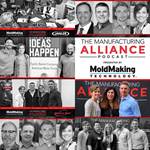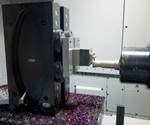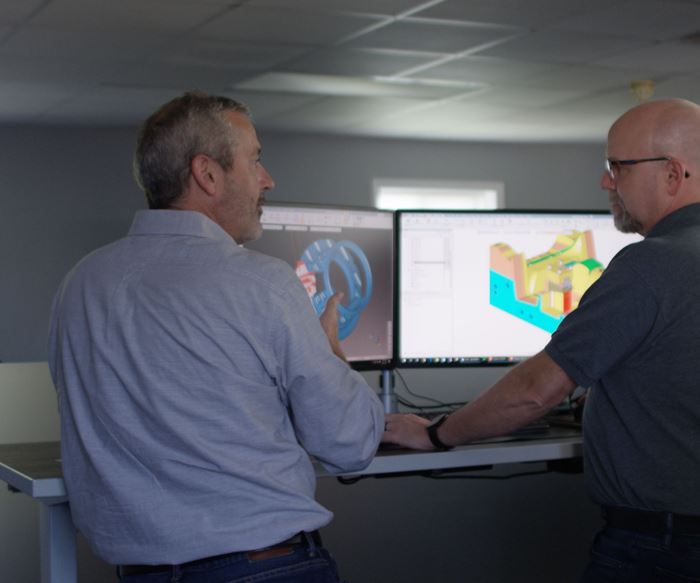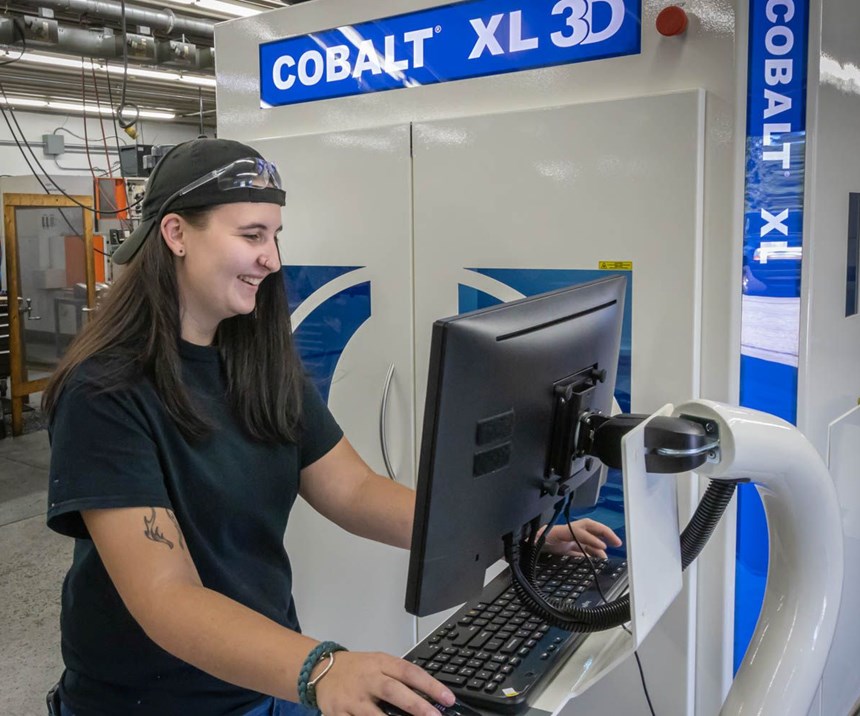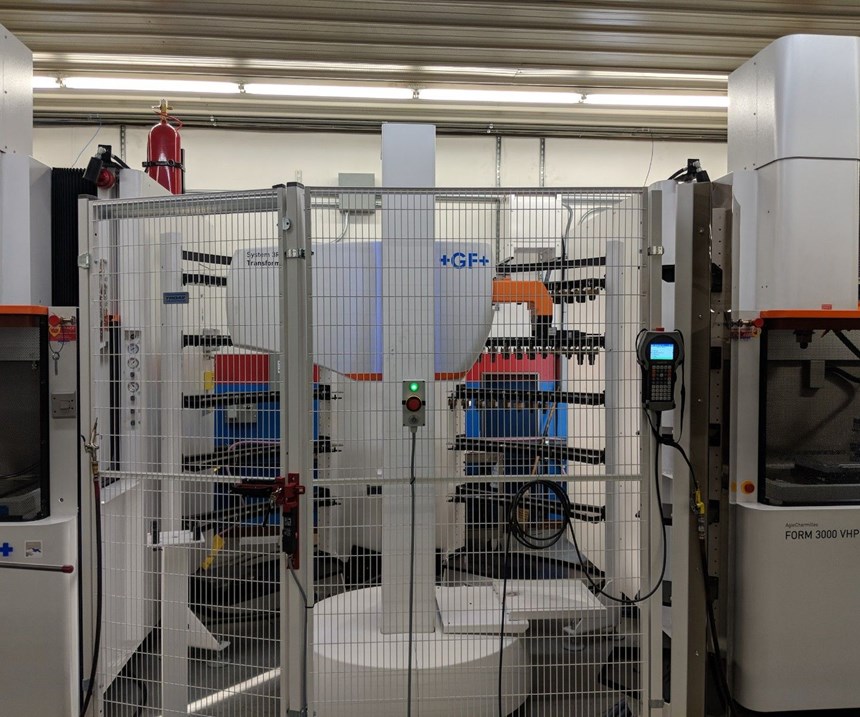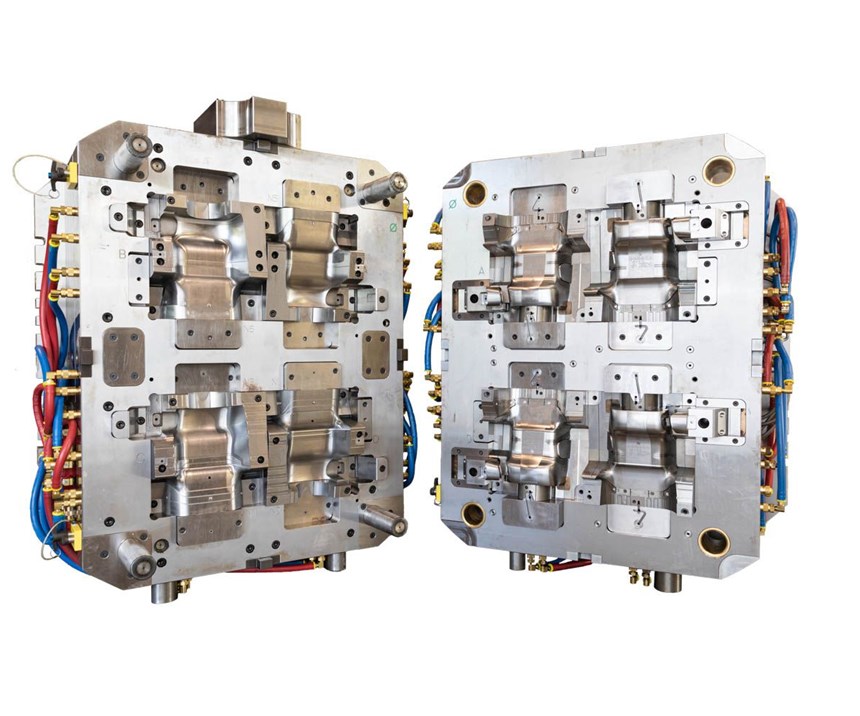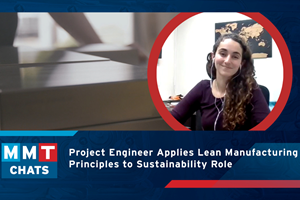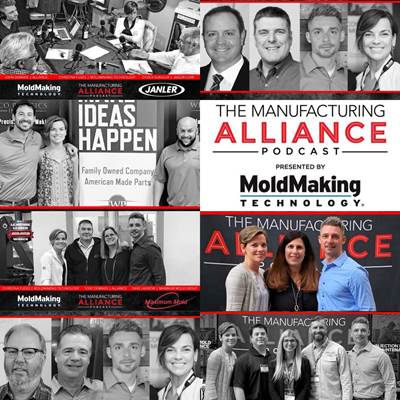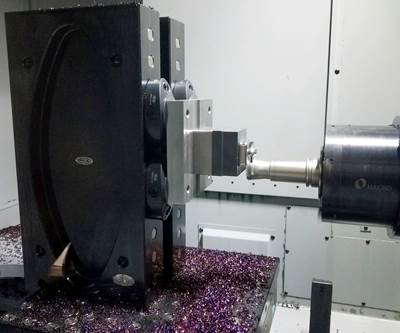Michigan Moldmaker Produces Tools Onshore and Off
Rather than fighting offshore competitors, Liberty Molds has spent the last 15 years producing injection tools in both China and Michigan—and it’s paid off.
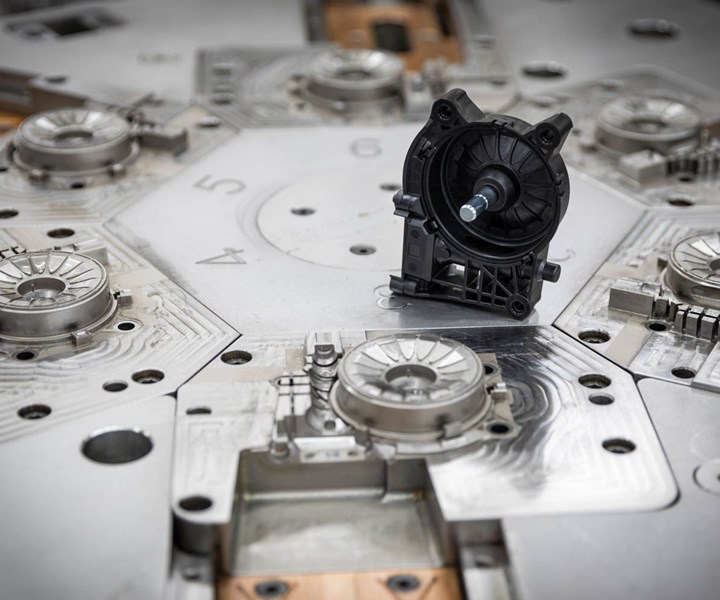
Liberty Molds, Inc. in Portage, Michigan, specializes in high-tolerance injection molds for high-volume production. Image courtesy of Liberty Molds, Inc.
Can you tell us about the services Liberty Molds offers its customers, what industries those customers represent and what your specialization is?
Brian Scott, president: We specialize in high-precision injection molds for high-volume manufacturing. Within that category, we make two-shot, hot-runner, unscrewing molds and molds with core pulls and slides, although we don’t make high-cavitation tooling.
We’re a full-service shop, so we can design molds, make engineering changes and, of course, we build prototype as well as production tooling. Roughly 25% of our 13,400-square-foot [1,245-square meter] facility is dedicated to engineering and the rest is used for manufacturing. We also own a small molding company a few miles away called Maxima Plastics, Inc. (Portage, Michigan). That facility is equipped with eight presses ranging in size from 55 to 500 tons where we offer mold sampling and tryout services to our customers. You could say our sweet spot is injection molds that fit presses under 500 tons owing to the size of our lifts, our machining centers and the size of our sampling presses.
Most of our work is in the automotive industry — with molds to produce interior trim items like door handles, air registers, instrument clusters and console components — but we also make tools for durable medical devices, consumer goods and electrical components. Interestingly, we’ve seen an increase in molds for electrical components thanks to the automotive industry’s move toward fleet electrification. Our tools make many components for battery electric vehicles — ranging from battery trays to separator plates and repeater frames to electrical covers and connectors. As automakers build more electric vehicles, we expect that to bring us more business.
What kinds of engineering changes do you find yourselves making? Do you also offer mold repair and maintenance services?
Scott: The majority of engineering changes we make are on our own tools. It’s very common for automakers to make small design changes every couple of years as they update styling on a new model of a vehicle, or as they change materials — for instance, when they move from an engineering thermoplastic to an olefin or they go from painting a part to using molded-in-color. Sometimes we make design changes for the same reasons on tools we didn’t build for some of the bigger automotive molders who are nearby.
Most of our molds are shipped to Mexico, so we don’t service them here. For local Michigan molders, the big ones have their own in-house maintenance shops, but we are available if someone needs help with a tool. We do have one local customer where we service six to eight battery-component tools for them every six months.
So many Michigan toolmakers — especially those with lots of automotive industry exposure — lost significant business to offshore competitors over the last couple of decades. Your company has taken a rather interesting approach to this. Can you tell us about it?
Scott: About 15 years ago, we figured out that instead of fighting offshore toolmakers, we would become one. When a large, local molding company closed, we hired some of their people. That molder had done a lot of outsourcing of its tools to China. Those new hires knew how to do that work, so a couple of us sat down and put together a business plan and presented it to ownership at the time. The numbers made sense so he said go ahead and do it. Instead of whining about offshoring, we decided to take control and try to win some of that business, and we’ve been doing that ever since.
Just to be clear, we both outsource tools and make them domestically. In 2018, all of our mold bases and about 50% of our molds were built in China and the rest were built locally — some by us and some with the help of other local moldmakers with whom we share work through the Southern Michigan Tooling Coalition. For a shop our size, this gives us a tremendous advantage because we can bid on much larger tool packages — say for 20 tools at one time. We then make 10 to 15 of them offshore and the rest of them here. That allows us to keep our own people busy and thriving without having to make huge investments to add capacity and then endure those boom-and-bust cycles. We also share work with other local toolmakers, who in turn share work with us — we just invoice each other at lower rates. And we can offer the kinds of discounts and fast turnaround times that larger customers — especially in the automotive industry — demand. And for the customer, it’s all totally seamless.
liberty molds inc.
What impact has the coronavirus (Covid-19) had on your business this year?
Scott: Well, right now the coronavirus is hurting lead times. Where before we were operating with a three-week lead time on mold bases, now that’s been extended to four to five weeks. If we have to get into air shipping instead of sea, then that’s going to kill all the cost advantage we gain from offshoring, so right now, it’s kind of wait and see.
With your location in Western Michigan, have you had any challenges finding younger people who want to go into moldmaking as a career?
Scott: Based on annual benchmarking surveys that we participate in, we do have a younger group of employees than many shops around us. I’d say that 30% of our team is under 30 years of age, but, really, it’s a good mix. We’re lucky on this side of the state to have local high schools that still emphasize the skilled trades. Plus, we have Ferris State University (Big Rapids, Michigan), where I went to school, and we have Kalamazoo Valley Community College (KVCC; Kalamazoo, Michigan), both of which have machine tool programs.
For a number of years, we’ve had our own program where we hire one to two students who are interested in this career path for a few hours a week while they attend high school and then full-time in the summers. After they graduate from high school, we either hire them full time or give them a good recommendation if they want to go somewhere else. If they stay with us, they have the opportunity to attend night school at KVCC for four years to earn their journeyman’s certificate. As long as they maintain their grades, we pay for those classes. So, essentially, we raise them ourselves and because of that, we have little turnover.
We also have two older, experienced toolmakers who are good teachers and like to share their knowledge with the younger kids. Of course, we send people off to take courses in various places, and we bring specialists in when we get new equipment or we upgrade our CAD/CAM software. One of my CNC operators is off to Indianapolis next week for a cutting seminar, and we just finished an in-house training program for the person who will run our new laser-etching machine. We also participate in the AMBA’s Youth Leaders program at the annual conference, which has been pretty helpful as well.
About the Author

Peggy Malnati is a Detroit-based contributing writer for MoldMaking Technology focused on case study/application stories and shop profiles. She has also been a contributing writer for CompositesWorld since 2006, for which she primarily covers automotive and ground transportation.
A long-time member of SAE and SPE, she has organized and managed large technical sessions and conferences for both organizations as well as for the former Structural Plastics division of SPI. For 15 years, she was a board member and the communications chair for the SPE Automotive Division. She also was editor of the 1994 McGraw-Hill book Structural Analysis of Thermoplastic Components. She has provided writing and communications services for the global plastics and composites industries since 1984.
Related Content
Strategies for Delivering a Qualified Talent Pipeline for Manufacturers
Insights into the importance of talent in maintaining national competitiveness, the impact of global events on the workforce and practical strategies for developing and implementing effective talent plans.
Read MoreThe Critical Role of Management Representatives in ISO 9001
In ISO 9001 quality management systems, the Management Representative (MR) plays a crucial role. While the 2015 version of ISO 9001 no longer mandates this position, having a trusted management member serve as an MR remains vital for streamlining operations and maintaining quality standards.
Read MoreMMT Chats: Project Engineer Applies Lean Manufacturing Principles to Growing Sustainability Role
MoldMaking Technology Editorial Director Christina Fuges catches up with MMT’s 30-Under-30 Honoree Katherine Pistorius, who has added Regional Sustainability Coordinator alongside her Project Engineer duties, which demonstrates the many paths one can take in a manufacturing career. Here she shares how this opportunity unfolded for her and what the job entails today and in the future. This episode is brought to you by ISCAR with New Ideas for Machining Intelligently.
Read MoreTop 10 Topics to Cover During an ISO 9001 Manufacturing Audit
Take a look at this practical hands-on approach to conducting a quality audit.
Read MoreRead Next
Making Moldmaking Conversation
MoldMaking Technology on The Manufacturing Alliance podcast have a little fun while showcasing some familiar faces yet untold facets of the businesses, technology and lives of mold builders across North America helping to build this industry.
Read MoreAccu-Die & Mold Excels in Die Cast Tooling with a Focus on Service, Engineering, and Precision Manufacturing
Accu-Die’s highly trained workforce, well-equipped shop are key to meeting the challenging demands of die-cast mold production.
Read MoreReasons to Use Fiber Lasers for Mold Cleaning
Fiber lasers offer a simplicity, speed, control and portability, minimizing mold cleaning risks.
Read More
.jpg;width=70;height=70;mode=crop)
